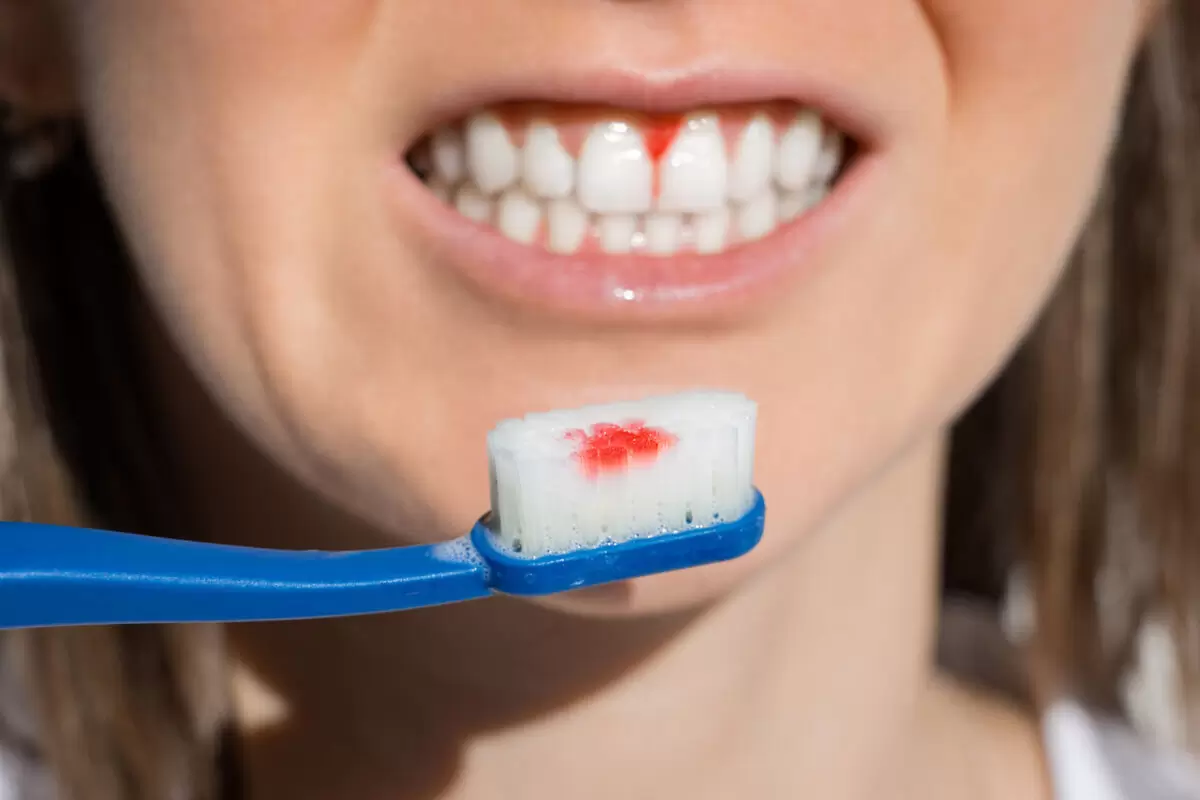Blog
Dental hygiene tips for healthy teeth & gums

Bleeding Gums When Flossing: Should You Call Your Dentist?
Maintaining good dental health requires a consistent flossing routine. Daily flossing, combined with regular brushing, helps remove plaque and prevent it from hardening on your teeth. However, it’s not uncommon for some people to experience bleeding gums while flossing. While this can be a normal occurrence in some cases, it’s essential to understand the reasons behind it and when it warrants a call to your dentist.
Common Reasons for Gums to Bleed While Flossing
Several factors can contribute to gums bleeding when flossing:
- Periodontal Disease: Gum bleeding can be a sign of periodontal disease (gum disease). Early detection and treatment are crucial for reversing its effects. Professional dental cleanings can remove plaque and tartar buildup. Proper at-home oral care can help gums heal.
- Hormonal Changes: Hormonal fluctuations, such as those occurring during menstruation, pregnancy, puberty, or menopause, can lead to changes in gum health. Hormones like progesterone can increase blood flow and make gums more susceptible to bleeding.
- Medical Conditions: Certain medical conditions, such as vitamin deficiencies (e.g., vitamin K or C deficiency), can cause gum bleeding. Vitamin C is essential for tissue growth and repair, while vitamin K plays a role in blood clotting. Conditions like diabetes, leukemia, and hemophilia can also affect gum health.
- Incorrect Flossing or Brushing: Using a hard toothbrush or applying excessive pressure while brushing can damage the gums and lead to bleeding. Soft or extra-soft toothbrushes are recommended. Using an old toothbrush with worn bristles can also increase the risk of gum irritation.
Why Calling Your Dentist is Essential
Contacting your dentist is essential when you experience bleeding gums for several reasons:
- Early Detection and Treatment: Dentists can diagnose and treat gum bleeding, even in the early stages of gum disease (gingivitis). Early intervention can prevent the condition from progressing to more severe gum disease, which can result in irreversible damage to teeth and supporting structures.
- Personalized Oral Care Guidance: Dentists can provide personalized advice on oral care practices, including correct brushing and flossing techniques. They may recommend specific oral hygiene products and educate patients on maintaining gum health at home.
- Professional Dental Cleaning: Regular dental check-ups include professional cleanings by dental hygienists. These cleanings remove plaque and tartar from teeth and gums, enhancing daily oral care efforts and improving overall oral health.
- Addressing Systemic Health Factors: Dentists evaluate gum bleeding in the context of a patient’s overall health. They may collaborate with medical professionals to address systemic conditions like diabetes, which can contribute to gum bleeding. A holistic approach ensures comprehensive dental and medical care.
In conclusion, bleeding gums, especially during flossing, should not be ignored. While it can be a common occurrence due to various factors, it may also indicate an underlying dental condition. Good gum health is essential for overall oral hygiene.
If bleeding persists or is accompanied by other concerning symptoms, it’s crucial to seek professional dental care. Early detection and treatment can prevent complications and maintain gum health. Don’t hesitate to contact your dentist in Crosby, TX, for a thorough evaluation and guidance on maintaining optimal oral health.


